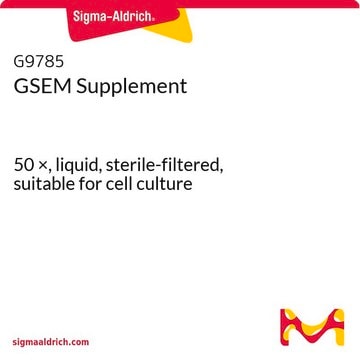A4284
L-Asparragina monohydrate
suitable for cell culture, BioReagent
Sinónimos:
4-Amida del ácido(S)-2-aminosuccínico, 4-Amida del ácido L-aspártico, Ácido (S)-(+)-2-aminosuccinámico
About This Item
Productos recomendados
biological source
synthetic
Quality Level
product line
BioReagent
assay
≥99% (TLC)
form
powder
technique(s)
cell culture | mammalian: suitable
color
white to off-white
mp
233-235 °C (lit.)
SMILES string
[H]O[H].N[C@@H](CC(N)=O)C(O)=O
InChI
1S/C4H8N2O3.H2O/c5-2(4(8)9)1-3(6)7;/h2H,1,5H2,(H2,6,7)(H,8,9);1H2/t2-;/m0./s1
InChI key
RBMGJIZCEWRQES-DKWTVANSSA-N
¿Está buscando productos similares? Visita Guía de comparación de productos
Application
- as a media supplement to culture Black Mexican Sweet (BMS) cells
- to prepare Adams III media to supplement C+Y medium for culturing Streptococcus pneumoniae
- in an asparagine-rich diet to study the E0771 syngeneic breast tumor growth and survival in mice
Biochem/physiol Actions
Storage Class
11 - Combustible Solids
wgk_germany
WGK 1
flash_point_f
Not applicable
flash_point_c
Not applicable
ppe
Eyeshields, Gloves, type N95 (US)
Certificados de análisis (COA)
Busque Certificados de análisis (COA) introduciendo el número de lote del producto. Los números de lote se encuentran en la etiqueta del producto después de las palabras «Lot» o «Batch»
¿Ya tiene este producto?
Encuentre la documentación para los productos que ha comprado recientemente en la Biblioteca de documentos.
Los clientes también vieron
Protocolos
XTT assay protocol for measuring cell viability, proliferation, activation and cytotoxicity. Instructions for XTT reagent preparation and examples of applications.
MTT assay protocol for measuring cell viability, proliferation and cytotoxicity. Instructions for MTT reagent preparation and examples of applications.
MTT assay protocol for measuring cell viability, proliferation and cytotoxicity. Instructions for MTT reagent preparation and examples of applications.
Protocolo del ensayo con MTT para medir la viabilidad, la proliferación y la citotoxicidad celulares. Instrucciones para la preparación de los reactivos MTT y ejemplos de aplicaciones.
Nuestro equipo de científicos tiene experiencia en todas las áreas de investigación: Ciencias de la vida, Ciencia de los materiales, Síntesis química, Cromatografía, Analítica y muchas otras.
Póngase en contacto con el Servicio técnico










